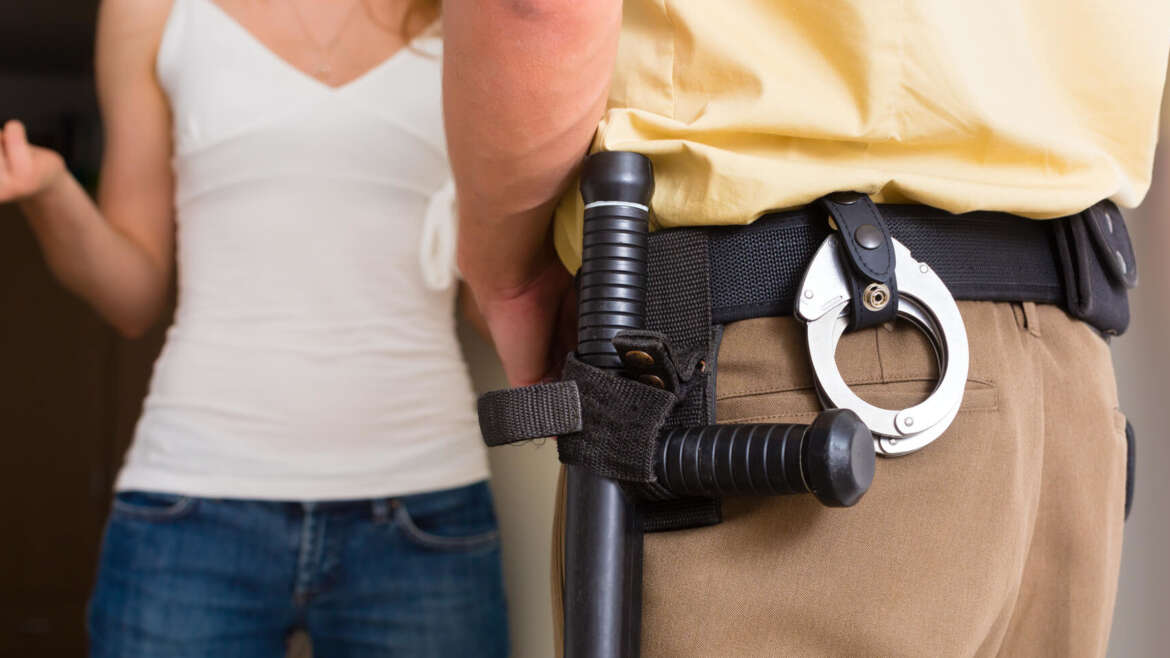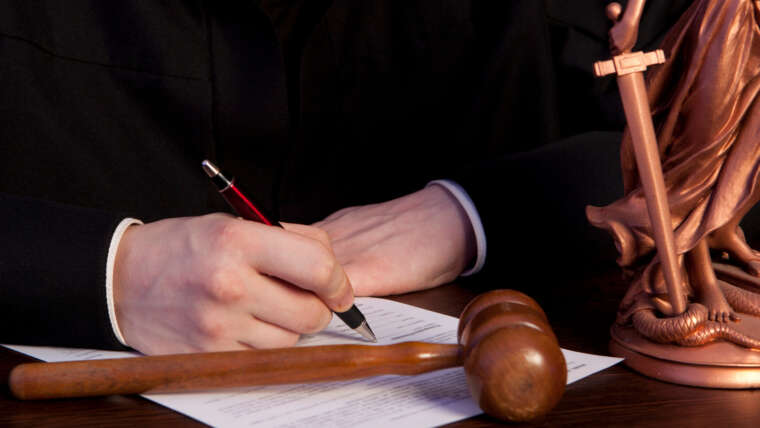Consider these hypothetical scenarios:
- Someone accidentally dials 911 and then immediately hangs up when the operator answers. A short time later, four police officers show up at the door and force their way inside.
- Police show up at a homeowner or renter’s door. The police tell the owner or renter that they are responding to an “unknown trouble call.” They say someone inside the residence called 911 but hung up. The owner/renter says that there is no trouble at the house. The officers enter the house anyways and start looking around.
To the untrained eye, there may seem to be something very wrong in both these scenarios. Don’t police need a warrant to enter a private home? As it turns out, the answer is not so simple.
In general, police cannot enter a private home without a warrant or permission of the owner (which may not always be the same person as the person living there). This is true even where the police have reason to believe the person inside has committed a criminal offence.
However, there are exceptions to this rule. One of those exceptions is where police receive a 911 call and have reason to believe someone inside the residence may need help.
What Can Police Do?
Police officers have the power to forcibly enter a home when responding to a 911 call for the purpose of determining whether the 911 caller is in distress.
However, if police can determine whether the 911 caller is in distress without entering the home, then they cannot go inside.
In addition, if the 911 caller is not in distress (for example, because they are a prank caller or because they are calling to complain about their neighbour playing music too loud) then the police have no power to enter the caller’s (or anyone else’s) home. The police right to enter a home is based on the police duty to preserve life and prevent injury. If the 911 call itself makes clear that nothing life threatening is happening, then the police duty does not come into play and neither does the corresponding police power.
Where Does This Police Power Come From?
The police power to enter a home in response to a 911 call does not come directly from any statutory law passed by Parliament. Instead it comes from the Supreme Court of Canada’s decision in R. v. Godoy [1999} 1 SCR 311.
The facts in Godoy were compelling. Someone inside Mr. Godoy’s home called 911 in the early morning hours of June 1, 1992. The call ended before the caller said anything. The 911 system labels these calls “unknown trouble calls.” Because the issue is unknown, these disconnected 911 calls were given the second highest priority for distress calls, behind only calls from police officers in distress.
Four police officers arrived at the apartment at 1:30am. They knocked on the door. A man answered. The officers asked if everything was alright inside and the man responded “Sure, there is no problem.” One officer asked if they could come in and have a look around. The man tried to close the door, but the officer stuck his foot in the way and the officers forced their way into the apartment.
Once inside, the officers heard a woman crying. They located the man’s wife in the bedroom lying in the fetal position on the bed. She had obvious swelling on her left eye and told officers the man had hit her.
Police tried to arrest the man (Mr. Godoy), and there was a struggle resulting in one of the officers breaking his finger. Mr. Godoy was charged with assaulting his wife and with assault with intent to resist arrest.
At trial, Mr. Godoy’s wife testified that he had never hit her, and the first assault charge was dismissed. The trial judge also acquitted Mr. Godoy on the charge of assault with intent to resist arrest. The trial judge was of the view that the police had no right to come into the apartment in the first place. As a result, the arrest was unlawful meaning there was no assault with intent to resist (a lawful) arrest.
The Crown appealed the acquittal on the assault resist arrest charge.
In its ruling, the Supreme Court of Canada (“SCC”) decided that police had the authority to forcibly enter the residence to investigate the 911 “unknown trouble call.”
It is important to note that this was a new police power. The power to enter a private home in response to a 911 call was not set out in any federal or provincial statute but was a power the SCC’s ruling in Godoy created.
The SCC’s reasons for doing so were straightforward:
- Police have a common law duty to protect life and prevent injury;
- Public policy requires that police be allowed to investigate 911 calls. This is an integral part of their duty to protect life even where police do not know in advance that a crime has occurred or is in progress; and
- Depending on the circumstances, police investigating a 911 call will have the power to enter a house to determine whether the 911 caller is in distress.
The facts of Godoy were a clear illustration of the policy reasons justifying a new police power. Police showed up to the house not knowing who the 911 caller was. A man answered the door and tried to send them away by saying everything was fine. If police had no power to enter the house, they would essentially be left to take the man at his word, which would have prevented them from providing his wife with the assistance she needed.
This new power was not limited to domestic abuse cases. Instead, it was a necessary part of a functioning 911 system. The SCC gave as an example a situation where someone dialed 911 because of a heart attack but was unable to come to the door or even talk when the police arrived. The 911 system simply would not do its job if the police had to shrug their shoulders and walk away.

911 Calls and Your Rights
In short, while homeowners have a right to privacy in their home, police can justifiably limit this right because of the importance of the 911 system in protecting the public and the role police play within the 911 system as first responders.
However, the SCC tried to avoid giving police a blank cheque to barge into people’s homes. The court placed the following limits on the police power it created:
- Police can only enter a home if it is necessary to allow them to find the 911 caller. If they can figure out who called 911 without entering the home, then they cannot go inside;
- The power only applies to 911 calls. For example, it does not create a police power to enter a home because an officer overhears a heated argument; and
- Police cannot do whatever they want once inside a home. They are only allowed to search the home for the 911 caller. They cannot start rifling through cabinets and drawers looking for drugs or guns (for example).
This post discusses just one of the many powers police have. Furthermore, as this post illustrates, the type and scope of police powers are constantly evolving. However, police powers are not unlimited, and there can be remedies available to a criminal accused where police exceed the scope of their powers or act without authority.
Therefore, if you are being investigated or have been charged with a criminal offence you should contact a criminal defence lawyer who can provide you with legal advice.
* This blog is not intended and does not constitute legal advice. Instead, it is intended only to provide some preliminary, legal information about the police powers to enter a dwelling following a 911 call. If you are being investigated or have been charged after police came into your home, contact a criminal defence lawyer immediately.



